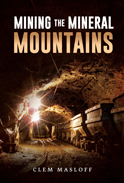
 |
For some readers, this science fiction fable will likely bring to mind actual historic occurrences that for ages have plagued man’s ability to govern without violence, prejudice, and oppression. When reading this novel of the future, one is continually reminded of parallels from the past that make us question the depths to which humanity can sometimes sink. The Nazi’s persecution of the Jews and the damage the Third Reich did to the country of Germany are perhaps what will seem most similar to the situations and events that occur in this novel. The Balkanization of Eastern Europe and the horrors of ethnic cleansing come to mind as well, as do Shiite and Sunni conflicts in the Middle East, plus the unimaginable repulsion of the Rwandan genocide and mass slaughters conducted by Hutus upon Tutsis in the 1990s. Fortunately, the author of this tale has chosen to dispense with reenactments of violence and gore. He has chosen to spice his story with the much more digestible condiments of action, suspense, and intrigue instead. Maybe there’s hope for the future after all.
Skull is a journalist who has ostensibly come to the nation of Landia to write about their extensive mining and export operations. What he’s really come to do is something he must keep hidden from Landian authorities. While he initially experiences a feeling of disdain for rude and authoritarian government officials who greet him upon his arrival, his spirits are raised when the charming and beautiful Veta is assigned to be his liaison. Little does he know that Veta’s original superiors have been obliged to transfer her services to Landia’s security operation, The Clandestine Service. They don’t trust Skull, and they order Veta to watch his every move and report back to them. Before long, both Skull and Veta have been scooped up by Bato, a member of the Minors Organization (a secret resistance operation) that wants to give Skull a true picture of Landia’s evil government. Soon, the truth of Landia’s brutal persecution and expulsion of the Xarti race is revealed, as is Skull’s true mission. The plot starts firing on all cylinders when Skull and Veta are pursued by the Clandestines, rescued by the Minors, and then get caught up in an attempted coup within the resistances’ own ranks. Will the coup succeed? Will the resistance survive the Clandestines’ attempts to obliterate them? Will Skull and Veta become more than simply participants in a whirlwind adventure?
Masloff tells his story chronologically. Doing so adds a sense of urgency and keeps the pace of his narrative rapid. Characters in science fiction tales are often depicted broadly, some unbelievably so, but this author is able to imbue the majority of his players with a sense of humanity that grounds the tale and makes it seem more believable. There is little in the way of stylistic flourishes in his writing. Rather, he maintains more practical prose that is easy to read and follow. He has also made the decision to avoid profanity and vulgar expressions that too often fill the pages of similar offerings in this genre. As mentioned initially, while the contents of this tale conjure some of the darkest moments in history, Masloff has not lost sight of the inherent goodness in most people. That goodness enabled individuals in the past to move on from the worst the world had to offer. The author of this science fiction saga gives us hope that people in the future will be able to do the same.